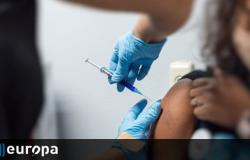In this new article in the Vaccines series on the Afya Portal, we will address immunizations for the adult population present in the PNI. Vaccines are one of the pillars in preventing morbidity and mortality from various infectious diseases. Still, data from the Ministry of Health shows that vaccination coverage in adults is falling. In 2022, only half of the adult population was up to date with their vaccination schedule.
In addition to the vaccines that were already included in the adult vaccination calendar, such as hepatitis B, yellow fever, HPV, among others, from 2021 to today we have seen an increase in new discoveries in the field of adult vaccination.
bivalent Covid-19
Bivalent vaccines have been used as a booster dose and they guarantee protection against the original variant, in addition to the omicron. Vaccines against Covid-19 are only available on the public network.
Influenza with high antigen load
Vaccination against the Influenza virus is the most effective measure to prevent the infection and its complications. Therefore, the population over 6 months of age is vaccinated annually with the formulation updated by the World Health Organization (WHO) and the Committee for Medicines for Human Use (CHMP), a body of the European Union.
Until 2012, vaccines produced against influenza were trivalent, that is, they protected against three different strains (two A and one B strains) and this is the type we currently have available in the Unified Health System. However, over the past two decades, two distinct lineages of influenza B have co-circulated, making it difficult to predict which strain to include in the annual vaccine. Thus, from 2012 onwards, tetravalent vaccines were licensed, which in addition to having the strains present in the trivalent, also have an additional B strain. The latter are available on the private network.
Recently, tetravalent vaccines with a higher antigen load became available in the private network. This vaccine It is more effective in the population over 60 years of age, who have a lower immune response due to immunosenescence and chronic diseases.
Vrespiratory syncytial virus
The vaccine is indicated for the prevention of lower respiratory tract disease caused by respiratory syncytial virus subtypes RSV-A and RSV-B in adults aged 60 years and older. It is currently only available on the private network and is associated with the Influenza vaccine with a high antigen load.
Herpes zoster
The new vaccine Shingrix – GSK, available only on the private network, is a recombinant, inactivated vaccine, which prevents the disease and its complications, such as post-herpetic neuralgia. It is a vaccine recommended for people over 18 years of age who are at greater risk of becoming ill and who are immunocompromised.
Dengue
In March 2023, the QDENGA® vaccine, from the Takeda laboratory, was authorized by Anvisa. It is a tetravalent vaccine against dengue, with an attenuated virus, with a two-dose schedule with 90 days between each dose. One dose already provides around 80% protection, however, the second dose makes this protection lasting and, to date, there is no evidence that reinforcements are necessary. What sets this vaccine apart is that it is the only dengue vaccine approved for use regardless of previous exposure to dengue.
The Ministry of Health initially makes the dengue vaccine available in regions with the highest incidence and transmission of the virus, covering children and adolescents aged 10-14, as this is the age group with the highest hospital admissions, after the elderly. In the private network, the vaccine is available for people between 4 and 60 years old.
HPV
We have had a change in the recommendations of the World Health Organization (WHO), which now indicates that a single-dose regimen can offer efficacy and durability of protection comparable to a two-dose regimen. In the SUS we have the tetravalent vaccine available and in the private network, the nonavalent vaccine.





